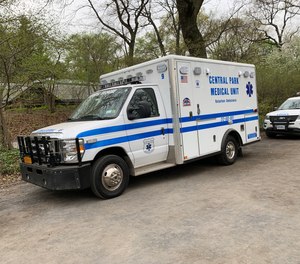
How to get the most money for the least amount of aggravation!
Generating operating capital for non-profit or government-based EMS organizations comes down to just a few sources. There are government subsidies, user fees, specifically ear-marked grant funds, and dollars generated through regularly scheduled fundraising activities.
Because money is money regardless of how it comes in the door, all “grant eligible” EMS operations aim to achieve a sustainable high-quality EMS organization through any or all these sources.
However, while applying for a grant is a “search and react” strategy, fundraising requires regularly scheduled and/or spontaneously targeted efforts using a more data-driven, proactive and opportunistic approach over months.
Applying for grants is just one tool in the toolbox a fundraiser can use when opportunities arise.
Grants are also usually very specific in terms of how the funds may be used while fundraisers work as retained or employed specialists who can assign generated funds with more ambiguity. (Sometimes, fundraisers may apply for grants or sub-contract a grant writer as part of their regular duties.)
EMS is no stranger to classic fundraising tactics like community outreach through bake sales, car washes, competitive games, etc.
However, many if not most organizations treat the process of fundraising and/or grant writing or both as something that can be delegated to a lower-skill level individual in the organization.
The most successful fundraisers are full-time executives who answer directly to the chief or president of a government EMS service or a non-profit EMS organization respectively.
The fundraising executives of both of these types of EMS organizations become the “hands out” representatives for these organizations.
Professional fundraisers have the data and tools to “ask for the company” in such a way that shares the organizations’ successes with their benefactors. Whoever is handling the actual grant writing in these organizations does so behind the scenes and with the same level of trust as the much more visible “fundraiser”. In some cases, it may even be the same person.
The truth is, the better your organization is at fundraising the better it will be at successfully applying for a grant. So, the short answer to the title question is – “In order to be successful, you have to do both, and do both well.”
Strategically plan a year in advance with the realization that the plan might change as new opportunities arise. Implement plenty of campaigns targeting your service area stakeholders and especially your past list of supporters that educate and inform before you ever ask for money. Develop spreadsheets; categorize your donors to determine who gave when and why.
Ask systematically and always point out the return on investment for your benefactors. Learn how to leverage social media to reach out to your supporters at a moment’s notice should a grant application deadline require their immediate advocacy.
Read next: How to strengthen the EMS workforce with grant funding
This article was originally posted December 17, 2012. It has been updated.
Copyright © 2025 EmsGrantsHelp.com. All rights reserved.
